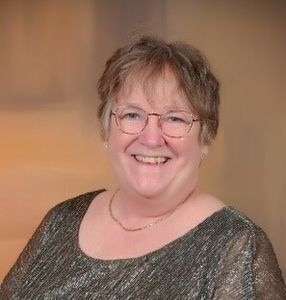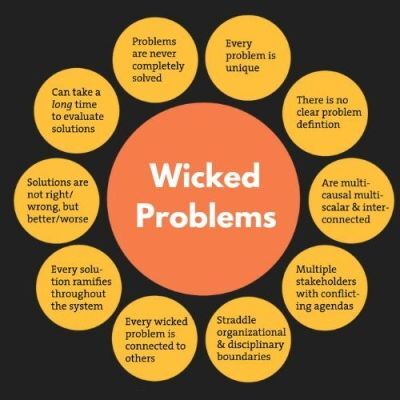Learn to shift your community's wicked issues into action.
Dates: POSTPONED
Duration: 6 weeks
This program is a six-week, instructor guided online Zoom course. New dates and times will be posted.
Use this date/time converter to check for other local times.
Registration POSTPONED! We encourage teams to complete the course together, so they can immediately apply what they learn to their real, wicked issues. Course is limited to 25 students so register your team early! If you join as an individual, you will be placed into an informal working group.
Course Description
Compassion is difficult and exhausting work at the best of times. In these times of turbulence and uncertainty, the challenges are magnified. We know it is hard enough for one person to take effective action in our complex world. Bringing a group together in collective action often seems intractable. At the Charter for Compassion, in collaboration with Human Systems Dynamics Institute, we are convinced that “nothing is intractable,” and transforming our hope for compassion into effective action is no exception.
Individuals and communities need new skills to help them thrive in complex, unpredictable, and often threatening situations. Every community has a unique combination of opportunities and challenges. Histories of trauma and the gifts of long-term relationships influence what is present today and what is possible for tomorrow. Sustainable change requires commitment, action, and continuous learning. There is no one-size-fits-all recipe for compassion, and dialogue alone is never enough. You need a variety of tools and a robust theory of change to shift patterns toward compassion in your community.
The challenge of change may seem overwhelming and impossibly complex, but you need simple and flexible options for action. One set of simple tools—based in theory and practice of complexity—help you build Adaptive Capacity for yourself and your community.
This experiential course is full of tools to help Compassionate Communities develop their Adaptive Capacity. Individuals and teams will practice skills they need to thrive in complexity—individually and collectively.
The topics and focus of this course will speak directly to the issues of community activists, political leaders, program evaluators, community and organizational leaders, market analysts, public-policy makers and any individual wanting to focus on sustainable change.
Four Examples of how Adaptive Action can work in your community.
- Even before Covid, emergency rooms in a large Canadian city were overcrowded, and hospitals couldn’t keep up. The system innovation team invited 80 people to a half-day meeting to address the problem—which had been intractable for many years. Each person left with one “next wise action” they could do to make a difference in the systemic pattern. Stress on ERs across the system declined significantly.
- A California school district was faced with social, fiscal, and political challenges. The Superintendent worked with others to develop a short list of simple rules. Students, teachers, staff, parents, and board members each implemented the rules in different ways, but together they created a more kind and productive learning environment for all.
- A preacher in East Africa brings a community together to demonstrate how Adaptive Action, Inquiry, Pattern Logic can offer an alternative to the power of privilege, corruption, and violence in politics.
- A high school cheerleader decides to pick up three pieces of trash every time she goes to the football stadium. It becomes a “thing,” and pretty soon there is no litter to collect. They have to look for another pattern to shift.
Course Outcomes
See your unsolvable, wicked issues as patterns you can shift.
- Master the art of creating meaningful, lasting change in complex systems and ecologies.
- Learn to play Infinite Games, where regenerative possibility emerges from unpredictable change.
- Discover the power of difference in complex community ecosystems.
- Learn and practice models and methods that are simple to use and easy to share.
- Apply what you learn to shift patterns and tame your own wicked issues.
- Discover additional resources and opportunities to learn more about human systems dynamics.
Course Outline
The program is structured to focus on four Simple Rules for creating hope in times of turbulence and uncertainty:
- Honor stories
- Open options for action
- Play with patterns
- Engage in inquiry.
Session 1: Honor Stories
- Set your team up for success by strategizing your Wicked Issues to work with throughout the course.
- Explore the world of community as Complex Adaptive System.
- Discover four Simple Rules for living in hope in overwhelming chaos.
- Develop shared understanding, common language, and shared tools to help you and your team be more effective.
- Recognize the power of four kinds of “truth.”
- Practice using the Four Truths and other tools to shift patterns of your own Wicked Issue.
Session 2: Open options for action
- Understand why traditional problem solving does not work in uncertainty.
- Explore the foundation and practice of Adaptive Action.
- Learn a simple, powerful practice to reveal patterns in problems.
- Practice Adaptive Action to shift patterns in your wicked Issue.
- Give and receive peer coaching to see, understand, and influence Wicked Issues.
Session 3: Play with patterns
- Discover the power of patterns over problems.
- Use tools of pattern spotting.
- Practice three questions that transform problematic patterns into possibilities.
- Apply what you learn to find new wise actions for your Wicked Issues.
Session 4: Engage in inquiry
- Experience the importance of inquiry in times of uncertainty.
- Practice four Simple Rules for Inquiry.
- Apply the Rules for Inquiry to move toward your next wise action.
- Prepare to continue learning and to share these ideas and tools with others.
Course Method of Delivery
- The sessions will be delivered on zoom and recorded.
- Participants will receive a free e-book of Coping with Chaos: Seven Simple Tools (Eoyang, 1997).
- Materials, including slides, recordings, handouts will be emailed to participants.
To Learn More Contact HSD institute
About the Instructor

Glenda Eoyang works with public and private organizations to help them thrive in the face of overwhelming complexity and uncertainty. She is a pioneer in the applications of complexity science to human systems, and she founded the field of Human Systems Dynamics (HSD) in 2001. Through Human Systems Dynamics Institute, she leads a global network of over one thousand scholar-practitioners. They apply HSD to wicked problems ranging from early childhood education to violent extremism, public health, and corporate futures and strategy.
Her clients include the Finnish Research Institute (VTT), USA Environmental Protection Agency and Centers for Disease Control and Prevention, Oxfam International, UK National Health Service.
Glenda's published works include scholarly articles in a variety of fields and books: Coping with Chaos: Seven Simple Tools (Lagumo Press, 1996), Facilitating Organization Change: Lessons from Complexity Science (Jossey-Bass/Pfeiffer, 2001), and Adaptive Action: Leveraging Uncertainty in Your Organization (Stanford University Press, 2013).
Her theory and practice provide a roadmap for anyone who chooses to work at the intersection of order and chaos.

Website: HSD institute
Contact: Email us!


